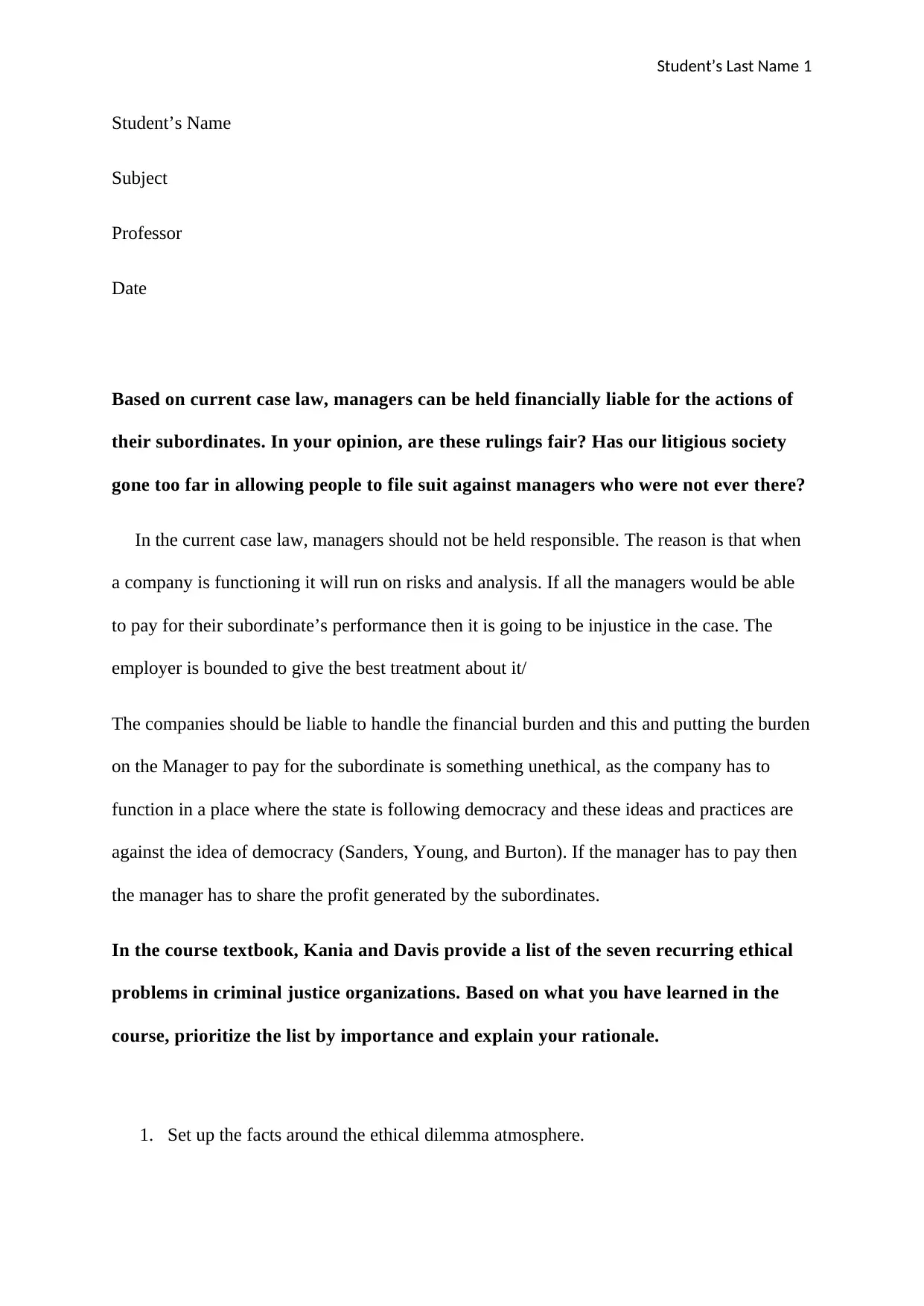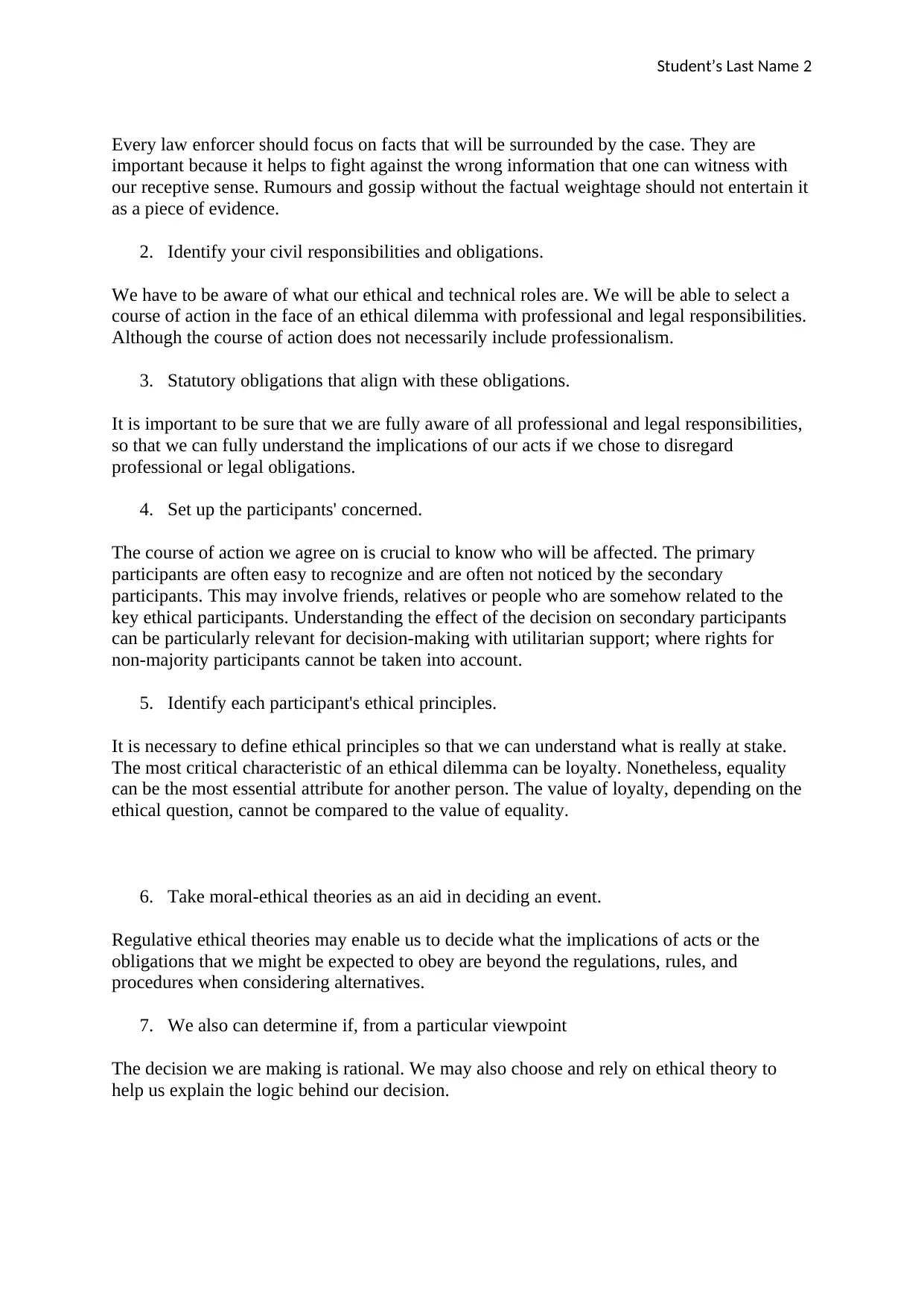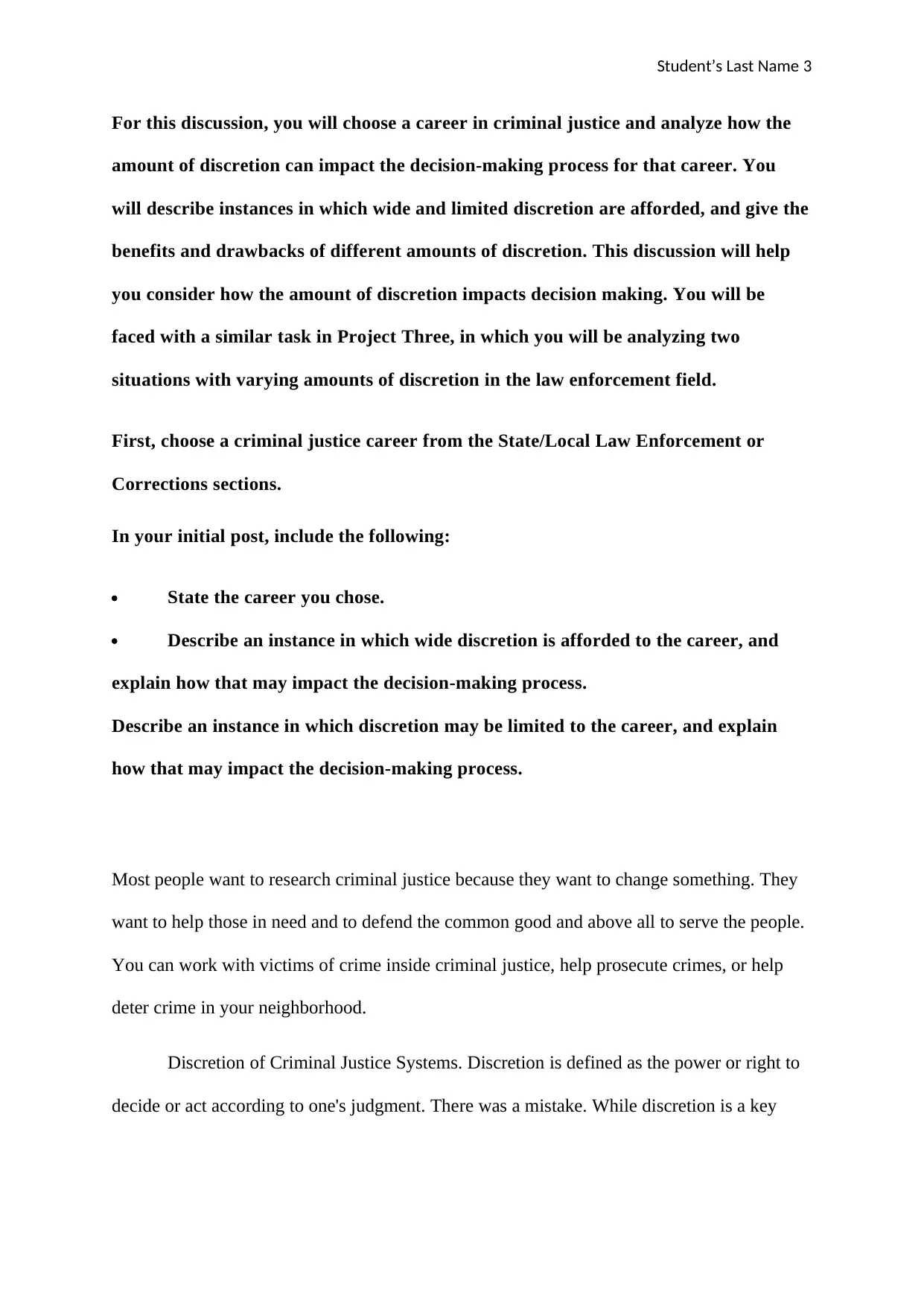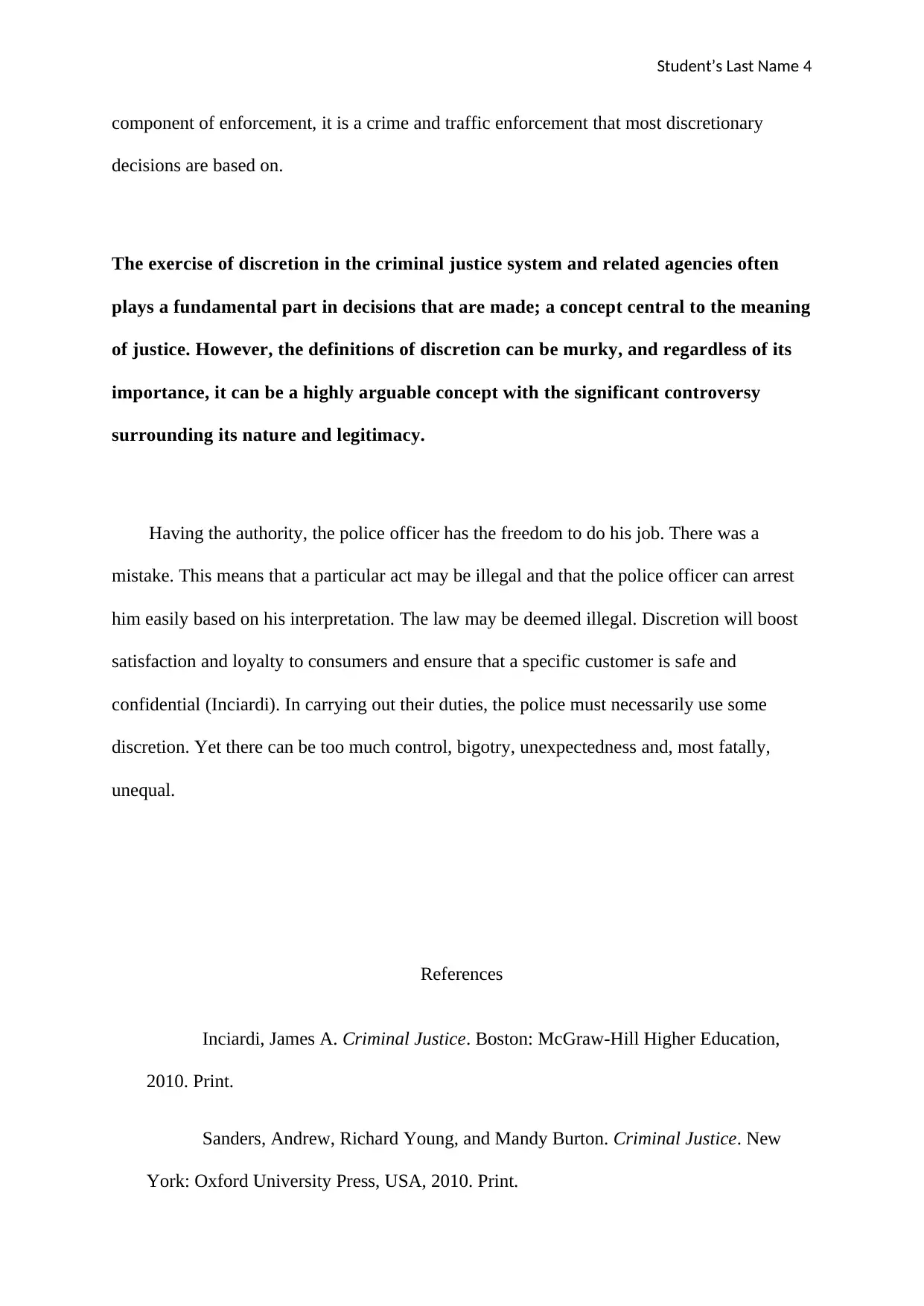Criminal Justice Discussion: Discretion, Ethics, and Responsibility
VerifiedAdded on 2022/09/26
|5
|1165
|16
Discussion Board Post
AI Summary
This discussion post examines the concept of discretion within the criminal justice system, focusing on the financial liability of managers for subordinates' actions and the fairness of such rulings. The post argues against holding managers financially responsible based on current case law, emphasizing the risks inherent in company operations and the potential injustice of such liability. It also prioritizes ethical problems in criminal justice organizations, highlighting the importance of factual information, civil responsibilities, and participant considerations in ethical dilemmas. Furthermore, the post analyzes the impact of discretion on decision-making in a chosen criminal justice career, exploring instances of both wide and limited discretion and their respective benefits and drawbacks. The author selects a criminal justice career and discusses how discretion affects the decision-making process, providing instances of wide and limited discretion and their implications. The post stresses the importance of discretion in criminal justice, acknowledging its potential for controversy while emphasizing the need for fair and equitable application.
1 out of 5











![[object Object]](/_next/static/media/star-bottom.7253800d.svg)